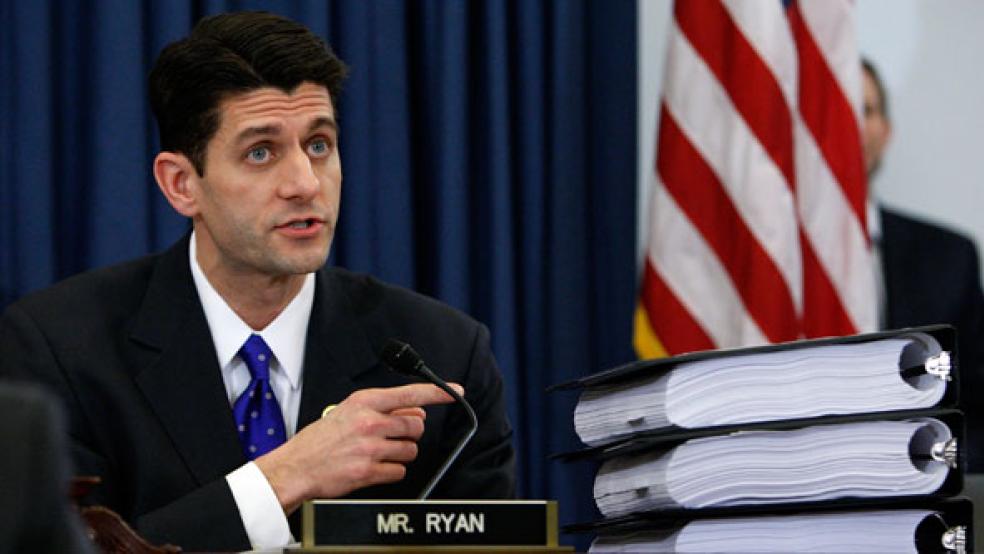House Republicans vowed this week to take a bit of more than $32 billion out of agency budgets over the next few months, angering politicians and activists on the left who called the plan draconian and an economy killer, as well as angering some conservative Republicans who would prefer much deeper cuts in line with the $100 billion Republican pledge proposed during the midterm elections.
The plan, introduced by House Budget Committee chairman Paul Ryan, R-Wis., on Thursday, would cut $74 billion off the budget request Obama submitted to Congress last year, but would reduce spending by a net of only $32 billion below 2010 levels, once new defense spending is factored in. The State Department, education, housing, transportation and some health-related programs would bear the brunt of the cuts. Democratic leaders deemed the plan “unworkable,” setting up what is likely to be a highly contentious budget season. The politically divided Congress must agree to a new spending bill in order to avoid a government shutdown on March 4, when a temporary funding resolution ends. Agreement on a new spending package may also be essential in order for House and Senate Republican leaders to go along with legislation to raise the debt ceiling this spring, when the Treasury is expected to exhaust its current $14.3 trillion borrowing authority.
"The president's bipartisan fiscal commission cautioned against such immediate spending cuts, and economists like Mark Zandi have made the point that deep and immediate spending cuts proposed by Republicans could raise the unemployment rate back into double digits," Rep. Chris Van Hollen, the top Democrat on the House Budget Committee, said in a statement.
Meanwhile, Sen. Rand Paul, R-Ky., a Tea Party leader, told ABC News Friday that the GOP budget falls far short of the solving the federal deficit. “It’s really not going to touch the problem,” Paul said. “There’s a disconnect between Republicans who want a balanced budget but aren’t maybe yet brave enough to talk about the cuts to come.” Paul’s own plan would cut spending by $500 billion this year with deep cuts across the board – including an 83 percent reduction in the Department of Education’s remaining fiscal year budget.
FrumForum, a conservative blog, called the House GOP plan “awfully timid.” “While acknowledging that certain promised savings won’t, or couldn’t materialize, a party committed to fiscal discipline could have found more areas — subsidies for ethanol, farm price supports, needless weapons systems — that would have more than made up for whatever doesn’t get pressed,” wrote Eli Lehrer.
Additionally, the conservative Heritage Foundation told the Hill newspaper that Ryan’s ceiling would not reduce spending to 2008 levels. “Chairman Ryan’s proposal would reduce non-security discretionary spending to $420 billion, down from the president’s requested $478 billion, but $42 billion higher than the promised 2008 level of $378 billion,” Heritage wrote in an e-mail. “What conservatives need to know is that the proposal leaves an unacceptable $42 billion on the table.”
The rhetoric is sure to heat up in the coming weeks – as President Obama releases his budget request for fiscal 2012, the deadline for funding government programs this year draws nearer, and lawmakers joust for a workable compromise. It isn’t yet clear what impact some of the latest economic indicators in GDP growth, consumer spending and the unemployment rate will have on the debate. However, polls in recent weeks have shown Americans more apprehensive lately about major spending cuts to solve the deficit problem.
Related Links:
House Republicans propose $32 billion in budget cuts (The Washington Post)
Republican Budget Cuts: Savvy Savings or Political Compromise? (ABC News)
House GOP wants $74 billion in budget cuts: Draconian or only a start (The Christian Science Monitor)


